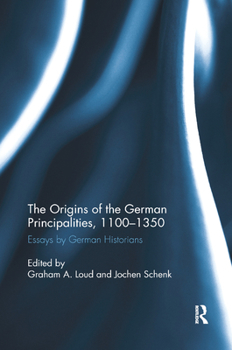The Origins of the German Principalities, 1100-1350: Essays by German Historians
The history of medieval Germany is still rarely studied in the English-speaking world. This collection of essays by distinguished German historians examines one of most important themes of German medieval history, the development of the local principalities. These became the dominant governmental institutions of the late medieval Reich, whose nominal monarchs needed to work with the princes if they were to possess any effective authority. Previous scholarship in English has tended to look at medieval Germany primarily in terms of the struggles and eventual decline of monarchical authority during the Salian and Staufen eras - in other words, at the "failure" of a centralised monarchy. Today, the federalised nature of late medieval and early modern Germany seems a more natural and understandable phenomenon than it did during previous eras when state-building appeared to be the natural and inevitable process of historical development, and any deviation from the path towards a centralised state seemed to be an aberration. In addition, by looking at the origins and consolidation of the principalities, the book also brings an English audience into contact with the modern German tradition of regional history (Landesgeschichte). These path-breaking essays open a vista into the richness and complexity of German medieval history.
Related Subjects
History




